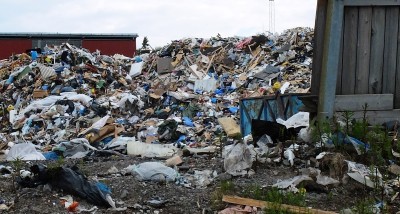Every town has its suburbs, even small towns. The natural after-thought of the town when it’s already established, the suburbs are where people live in relative ease, away from busy roads or industry, getting on with their lives in relative peace and quiet.
In Kiruna the residential areas are as near shops and facilities as in the older part of town, but they have a different character. You see this in the street names. In the older town you move between streets named after political heroes of the 1920s (Adolf Hedin Road), mining heroes (Hjalmar Lundbohm Road, Hermelin Street), significant town activities of the early 1900s (Railway Street, Mine Road, Drillers Street, Drivers Street), important town buildings (Church Street, Library Street). Some streets in town still have no name – ours for instance (Crossing Street).
In the later, more clearly residential, developments the street names refer to natural phenomena (Aurora Road, Solar Wind Road), new activities (Satellite Road, Rocket Road, Radar Road), and features in the landscape (Birch Path, Forest Road, Rowan Square). These, more ‘suburban’ streets, follow a familiar pattern – they are named after the trees that were cut down to build them.
Perhaps it’s only when suburbs are built that people start see that development is about loss as well as gain, and feel the need to mark the lost land with a name that will always bring to mind what it used to be.
What to do, then, when you are relocating an existing town, as we are in Kiruna? Will this follow the pattern of early town behaviour – glorious heroes and worthy occupations – or the suburban model of marking natural phenomena and landscape?
It’s a question that has to be answered when it comes to building ‘the New Kiruna’. However, we’re a long way off that yet. The sign has been up for two years claiming the New Kiruna is being built, but still no new buildings to be seen.
To be fair, the council, responsible for the development, have had its problems with the chosen site. First there was an existing business there that refused to move until it was offered a reasonable relocation site. This matter went to various higher bodies to decide, and has only just been settled.
But after that came another problem. The site was partly owned by the mining company (LKAB) that had a mine nearby, now not in use. It turned out that the land was rather more poisoned by the presence of old metal compounds than anyone had anticipated. LKAB had pointed out to the council when the site was chosen that it was still in the area where iron ore existed, and they were not, for that reason, very keen on it as a site for the new town. But they were overruled (and one wonders if LKAB didn’t know just how poisoned the land was). Now there will be a process to remove these metal compounds from the land. We are assured this will solve the problem and the land will be fit to build on. The work will begin this summer.
Meanwhile, it hasn’t gone unnoticed by the people of Kiruna that currently sitting right next to the site for the New Kiruna is a giant rubbish tip. A minor matter to move, you might think.
However, for some reason, since the site was chosen the council has failed to search for and apply for permission for a new rubbish tip site. Achieving this now will take some years. One can only wonder why this wasn’t thought of earlier.
But now, making the best of a bad situation, the council are applying for permission to keep the rubbish tip where it is. In the new town, they claim, things will be so advanced that chutes will bring rubbish directly to the site. Oh brave new world! How modern and admirable that will be! They won’t need to move the rubbish tip – we can instead all be glad it is so handily nearby. We’re not sure that the higher authorities, who must give permission, will agree with this vision, but at the moment it’s hard to see any alternative.
So we are trying to picture the future.
Should we imagine heading for the town hall in the new town’s central Copper Square? Going for a coffee in Oil Street, a short walk from the bank in Cobalt Park Avenue, and then returning to our flat in Heavy Metal Road? The supermarket might be in Mercury Street, and the town’s main hotel in Lead Lane. From there, visitors to the town might head out for a meal in one of the fine restaurants on Rubbish Tip Avenue.


